Deleuze at the End of the World
Deleuze at the End of the World
Latin American Perspectives
Edited by Dorothea E. Olkowski and Julin Ferreyra
ROWMAN & LITTLEFIELD
Lanham Boulder New York London
Published by Rowman & Littlefield
An imprint of The Rowman & Littlefield Publishing Group, Inc.
4501 Forbes Boulevard, Suite 200, Lanham, Maryland 20706
www.rowman.com
6 Tinworth Street, London SE11 5AL, United Kingdom
Selection and editorial matter Dorothea E. Olkowski and Julin Ferreyra, 2020
Copyright in individual chapters is held by the respective chapter authors.
All rights reserved. No part of this book may be reproduced in any form or by any electronic or mechanical means, including information storage and retrieval systems, without written permission from the publisher, except by a reviewer who may quote passages in a review.
British Library Cataloguing in Publication Information Available
Library of Congress Cataloging-in-Publication Data Is Available
ISBN 978-1-78661-466-7 (cloth : alk. paper)
ISBN 978-1-78661-467-4 (electronic)
 The paper used in this publication meets the minimum requirements of American National Standard for Information SciencesPermanence of Paper for Printed Library Materials, ANSI/NISO Z39.48-1992.
The paper used in this publication meets the minimum requirements of American National Standard for Information SciencesPermanence of Paper for Printed Library Materials, ANSI/NISO Z39.48-1992.
Introduction
Dorothea E. Olkowski
At the End of the World
This is what happened. Fanny Deleuze translated a text by D. H. Lawrence into French, a text written by Lawrence as he was dying, a text called Apocalypse, a commentary on the biblical Book of Revelation. Gilles Deleuze wrote the introduction for this translation, a book about the end of the world, a book about what it is to be at the end of the world, an event that Lawrence and Deleuze transform from the finality of the Judeo-Christian Apocalypse into a book for all those who think of themselves as survivors. It is a book of Zombies. Two questions arise almost immediately. First of all, why would Deleuze, renegade thinker par excellence, be inclined to take up this subject? Even given the Nietzschean influence on Lawrences critique, how can this be relevant for Deleuzes philosophy? And second, how can a text about a book called a book about Zombiesthe living dead or the living assumed to be deadbe relevant for a collection of essays from scholars who take themselves to be situated at the end of the world, this constellation of esoteric authors, as one of them names them? That is, is it appropriate or is it correct to engage with the apocalyptic end of the world in order to make sense of the point of view of a world so geographically distant from the Parisian intellectual hub of Deleuze and that of his more centrally located adherents that the scholars who have created this book consider their own voices to comelike Lawrencesfrom the end of the world?
Lawrence was born in England but found it hostile to his anti-war views and left as soon as possible after World War I, wandering nomadically mostly between Europe, the southwest of the United States, and Central America over many years. He never visited South America but spent parts of 1922 and 1923 in Taos, New Mexico; and Chapala, Mexico, where he began one of his last novels, The Plumed Serpent, and he left only, it seems, because of the pending revolution. He returned to Mexico, to Oaxaca, in the fall of 1924 and probably finished the book there. Apocalypse was written after his sojourns to Mexico in 19291930 in France, just prior to his death. Deleuze, as far as we know, has never visited any of these places outside of France, rarely even leaving Paris, but like Lawrence, he suffered from tuberculosis from a young age and eventually succumbed to lung disease, which led to his suicide.
No doubt, D. H. Lawrences nomadic life was attractive to Deleuze, who was similarly drawn to T. E. Lawrence and writes of the other Lawrence that there is a private desert that drives him to the Arabian deserts, among the Arabs, and that coincides on many points with their own perceptions and conceptions, and further that Lawrence speaks Arabic, he dresses and lives like an Arab, even under torture he cries out in Arabic, but he does not imitate the Arabs. And like Deleuze, both Lawrences suffered bodily, tuberculosis for one and torture and rape for the other.
Focusing on D. H. Lawrence, Deleuze reveals two conceptions of the end of the world: one described as that of modern thinkers, hungry for Power, for blood and destruction; and another, that of the aristocratic mind, the nomadic wanderer, the lover. Both can be found in the book written by Lawrence, originally intended to be an introduction to a book by Frederick Carter on the dragon of the Apocalypse. This introduction25,000 wordseventually became Lawrences own book, motivated not by religious fervor or even scholarly enterprise, but by a book written for very different reasons.
Who cares about explaining the Apocalypse, either allegorically or astrologically or historically or any other way. All one cares about is the lead that the symbolic figures give us, and their dramatic movement . If it leads to a release of the imagination into some sort of new world, then let us be thankful.
For Lawrence a book only lives while it has power to move us and to move us differently; so long as we find it different every time we read it, and so he concludes that given his pious childhood education, he knows the bible and he knows it with an almost nauseating fixity due to the manner in which it was constantly poured over his head. But he returns to it in a state of increasing ill-health, not because he knows it but to read it differently.
What we may glean from Lawrences account of the end of the world seems to arise, not from the biblical apocalyptic rage of its author John of Patmos, nor from Lawrences own harsh religious upbringing, but from somewhere else, from another end of the world than the one that was forced on him as a child. As an adult near his own lifes end, Lawrence recalls the imagery of Revelation as ugly, ridiculous, pompous, and unnatural. It is a text, he says for the uneducated Scotch Puritan peasants and early Christians who wished to denounce kings, rulers, and women who are actually goddesses but are defamed as whores. The Christianity of tenderness and love overrun by that of apocalyptic self-glorification.
This division is further characterized in terms of human nature oriented by the opposition of aristocracy and democracy. Jesus, John the Apostle, and Paul are among the aristocrats Lawrence takes to be capable of the tenderness and unselfishness that comes from a unique strengthnot the democratic tenderness and unselfishness of weakness and revenge coming from those who cry out for, who demand an Apocalypseand not those whose will wipe all worldly power, glory, and riches off the face of the earth.
The author of the Apocalypse is also called John but it cannot be that the same man wrote the two works, they are so alien to one another; this because Apocalypse appears to be the work of a second-rate mind that gave energy to the idea of the Millennium, the undying will-to-power that appeals to second-rate minds and to the collective nature of humankind.
For Lawrence, the Book of Revelation has lost any understanding of the cosmos as a thing greater than ourselves, as the great orb of the Chaldeans, who were known for astronomy, and the god Helios, the Sun god.
Deleuze recognizes the Nietzschean strains of Lawrences disgust, but he focuses on a particular aspect of the Nietzschean assault on so-called slave morality as carried out by Lawrence. What draws his attention is the typology of persons, the two Johns, the one who wrote the gospel of John and the one who wrote the Apocalypse because they serve as the sign for two types of end of the world. It is the distinction between two types of man, two regions of the soul, two completely different ensembles, that entices him to consider this.

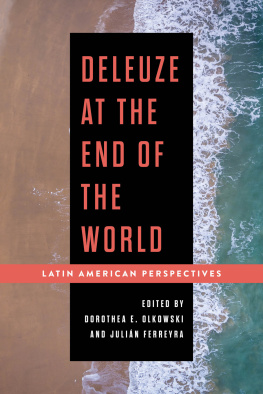
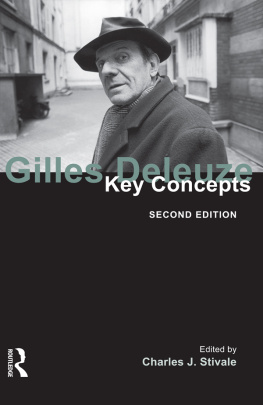
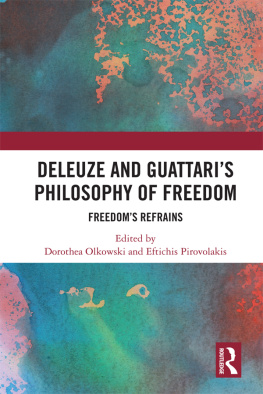
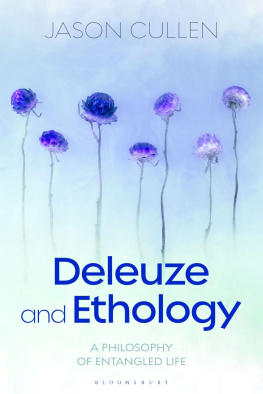
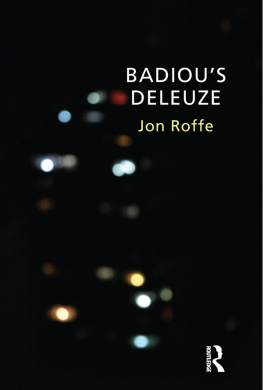
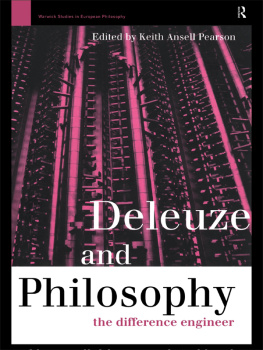
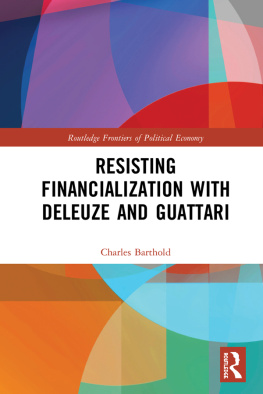
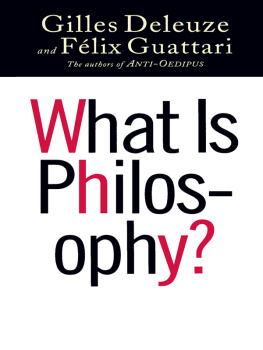
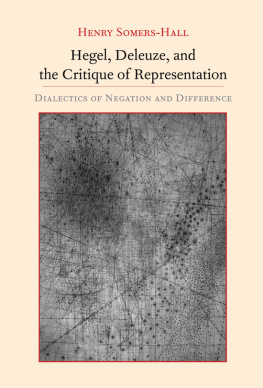
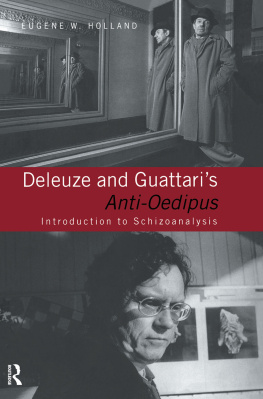
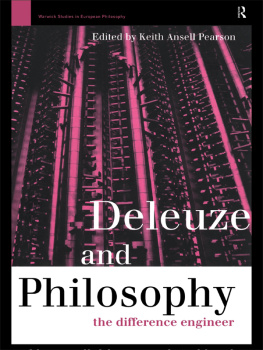
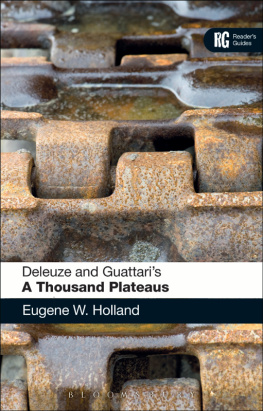


 The paper used in this publication meets the minimum requirements of American National Standard for Information SciencesPermanence of Paper for Printed Library Materials, ANSI/NISO Z39.48-1992.
The paper used in this publication meets the minimum requirements of American National Standard for Information SciencesPermanence of Paper for Printed Library Materials, ANSI/NISO Z39.48-1992.